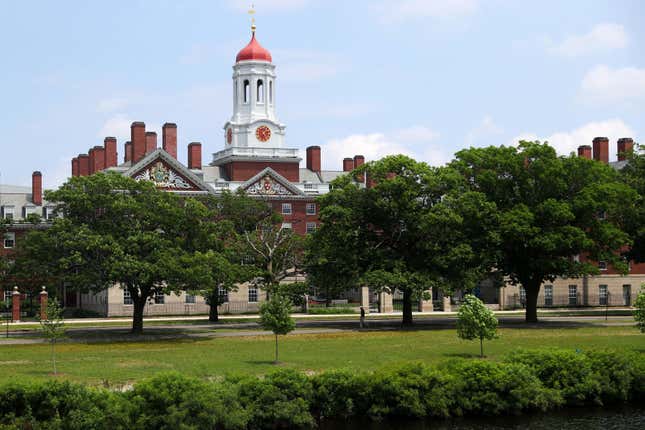
The Supreme Court is due to hear a challenge involving the use of affirmative action in college admission processes in late November. Last week, the high court agreed to decouple the two cases against the University of North Carolina and Harvard so Judge Ketanji Brown Jackson can rule in the UNC case. Ahead of the critical ruling, Harvard University filed a brief saying affirmative action is necessary to create a diverse student body, the Harvard Crimson reports
Anti-affirmative action group Students for Fair Admissions is arguing the school’s admissions process discriminates against Asian Americans during the admissions process. Harvard’s admission policy violates the Constitution’s Fourteenth Amendment by considering a student’s race.
SFFA argues that Harvard and UNC institutions discriminate against white and Asian applicants by favoring Black, Hispanic, and Native American students. Harvard’s brief cites cases like Grutter v. Bollinger and Fisher v. University of Texas, where the Supreme Court ruled in favor of precedent to show their practices align with these rulings.
“Nothing in the text or history of the Fourteenth Amendment suggests that universities must uniquely exclude race from the multitude of factors considered in assembling a class of students best able to learn from each other,” the brief said.
“Absolute neutrality has never been a universal constitutional principle,” Harvard argued, saying that the framers of the Constitution’s 14th Amendment saw race-conscious measures as necessary to ensure Black people’s “equal participation in society” following the Civil War.
Harvard’s website cites Asian American student acceptance at 25.9% and African American students at 15.9% out of 2,320 total. Lower courts have ruled in favor of Harvard and UNC, but the university remains steadfast in its mission to diversify its student body.
“Harvard has repeatedly studied and continues to evaluate the importance of student-body diversity to its educational objectives and whether a race-conscious admissions process remains necessary to achieve them,” the school’s Monday brief said. “But as the district court observed, ‘we are not there yet.’”
“No alternative is presently workable,” the brief states. “Until that changes, Harvard must be allowed to consider race as one of many characteristics in admissions to achieve the compelling benefits of student-body diversity.”
SFFA’s reply to Harvard’s brief is due on August 24. Decisions in both cases would likely come by July of next year.

